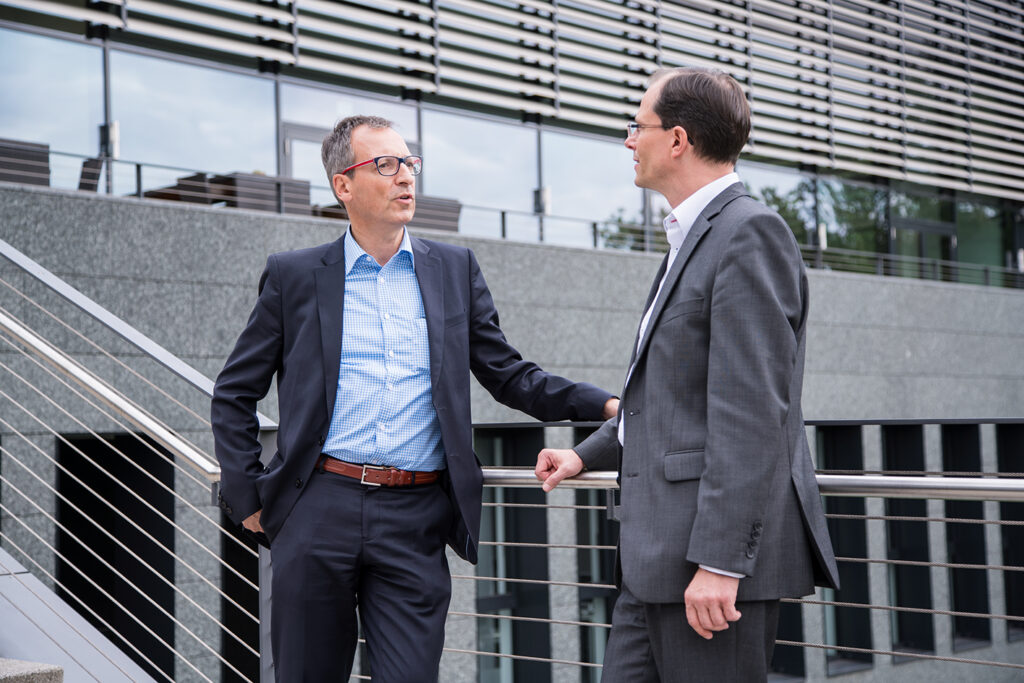Leadership needs climbing wall careers

Increasing self-organization is now on the agenda almost everywhere. If hierarchies are reduced as a result, career alternatives are needed. If this does not exist, then it is only logical that managers block change. Climbing wall careers offer a way out of this dilemma.
A guest article by Anne M. Schüller.
Leadership that makes sense

People strive to be able to tell their lives as a coherent story: As a narrative with desirable goals in the future and a past that gives strength through the good we look back on, but also the crises we have grown from. When integration of the past and anticipation of the future make a coherent whole in today, people say: That makes sense.
Multifunctional development center for a global brand company

For the entire marketing division of a national subsidiary of a global branded goods company, we have laid the foundation for team development and realignment with a multifunctional development center
in addition to the skills evaluation. Find out in this best practice how you can combine diagnostics and
development and design a successful team event.
What remains of leadership

When Dr. Felser (Netskill Solutions) invites, full halls are guaranteed. This was also the case on March 28 at #NextChampions. This time, people gathered at Phantasialand to discuss, exchange ideas and network in fishbowls and various sessions. Topics included viable success patterns for hidden champions and other companies in the relevant design areas of marketing, new work and HR, and Industry 4.0.
Strametz at the #NextChampions HR event

Already for the fourth time, Dr. Felser invited to networking, exchange and discussion – this time to Phantasialand. 500 visitors found themselves in inspiring sessions on Next Marketing, Next HR and Next Digital. The session on “Next Leadership” by Michael Kühner (Strametz) was also well attended and provided great opportunities for exchange. We also presented our new book for the first time.
Next Leadership needs the Next Leader

What makes for successful leadership? And when exactly is leadership successful?
Leadership should not only be good, but as effective as possible and generate success. But what exactly does success mean? Success is not easy to define and must always be viewed in context. The word “follow” is in it, and means success follows something. However, success is ultimately something that others evaluate.
New Whitepaper: Active Learning

How do we learn today – especially in times of permanent structural changes and rapid developments? What forms of learning are effective? Active Learning as a method aimed at acquiring direct experience could be an answer to today’s training needs in the market.
Read more in our latest whitepaper!
Value-based leadership in transformation

Values sound like permanence, transformation sounds like change. We always live between continuity and change, we preserve and change. That has always been the case. What is different today? The world is becoming ever more complex and interconnected, technical developments more rapid as a result, and thus the overall pace of change is breathtaking. How are we as leaders supposed to “stay the course”? Let’s take a look at the patterns behind the changes and the constants to watch out for.
Learning today

Volatility, Uncertainty, Complexity and Ambiguity (VUCA) are the buzzwords that characterize our time today. The rapid development of complex technologies and markets has created an environment that is bringing about profound changes in a wide range of areas. Companies and people have to adapt and permanently learn anew. Questioning the old, evaluating the existing and creating the new.
Future Work Planning – Shaping the Work of the Future

Whether we talk about new work, digitization or digital transformation, one thing is clear: the world of work is undergoing fundamental change and “work” is on its way to the next stage of evolution. Digitization is possibly the strongest driver, because it changes everything: the way we work, live, communicate, lead. The way to acquire, pass on and expand knowledge, to obtain and share information. The way to consume, buy and share. The changes in the world of work will be drastic: Services and products may change completely, work will no longer be a place where you go, and tasks, working methods, working hours and places will change. Tasks will be completely eliminated, but new ones will be added that we cannot yet name. If companies are prepared to deal with change at an early stage, it holds great opportunities: to position themselves for the future, to remain or become innovation leaders and an attractive employer, and to design “work” in such a way that a balance is created between the requirements of the company and those of its employees.
